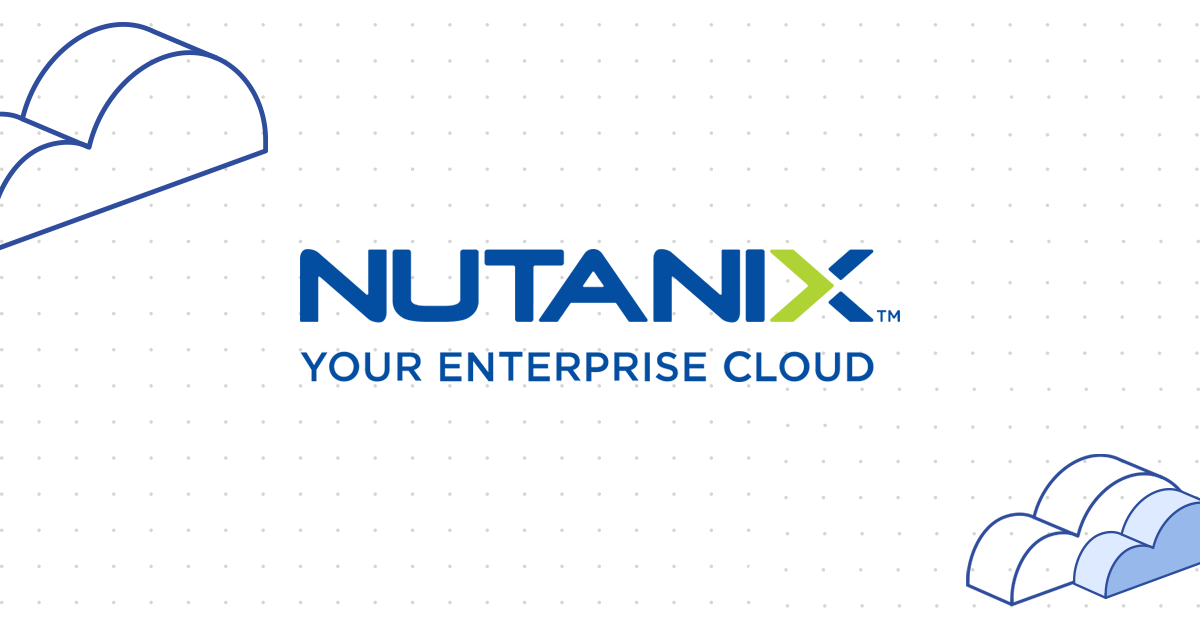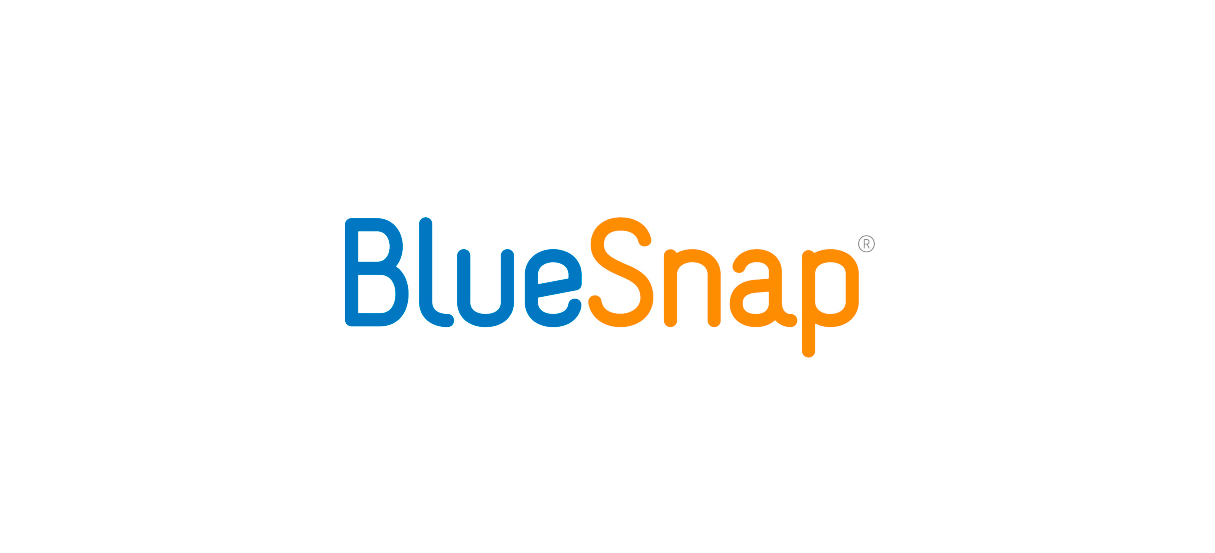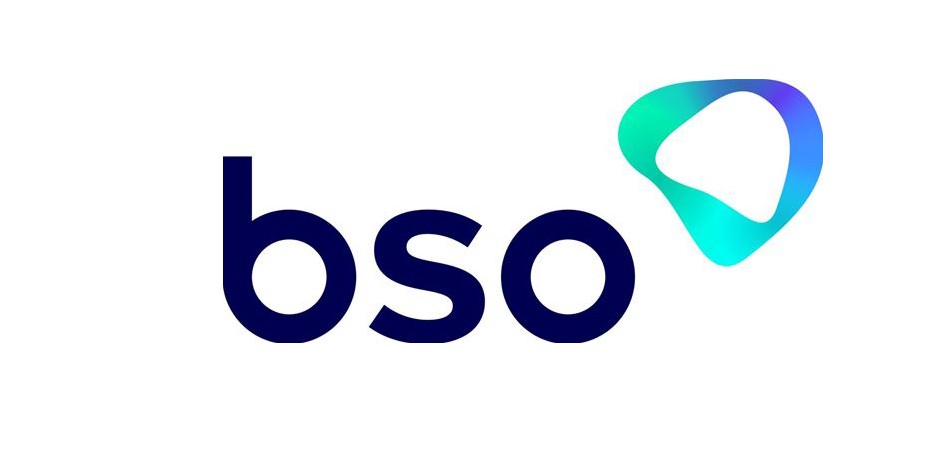Published
- 02:00 am

CTERA, the edge-to-cloud file services leader, announced a new partnership with Varonis to integrate the Varonis Data Security Platform with the CTERA Enterprise File Services Platform. The joint solution offers data classification, audit log processing, and auditing capabilities to defend sensitive data from theft, leakage, and loss. Together, CTERA and Varonis allow organisations to modernise their file services while simplifying compliance with regulations such as GDPR, SOX, and HIPAA.
As the volume of unstructured data continues to explode and workforces become distributed and mobile, there is an ever-growing need for global file system technology that enables users to efficiently access and share files from anywhere. The ability to protect files wherever they are created, accessed, and shared across the remote workforce has become imperative for the post-COVID enterprise.
CTERA enables access to files from any edge location or device without compromising performance or security. CTERA's global file system combines the unlimited capacity of cloud object storage with caching edge devices, empowering organisations to replace and consolidate legacy NAS infrastructure. Remote office users increase productivity through real-time multi-site file synchronisation, and decision-makers gain centralised visibility into all enterprise data.
The Varonis integration with CTERA enhances centralised visibility of organisational files from edge to cloud. The Varonis Data Security Platform detects and responds to threats that bypass traditional perimeter security. Machine learning algorithms automatically detect and alert on abnormal user behaviours that indicate potential compromise by threats such as ransomware and trigger responses to mitigate any possible damage.
Together, CTERA and Varonis deliver the following benefits:
- Visualisation of user access to sensitive and regulated information across global locations
- Automatic detection and response to abnormal behaviour that indicates threats such as ransomware, malware, and advanced persistent threats (APTs)
- Full audit and analysis of every file touch on-premises and in the cloud
- Fast identification of exposed folders, stale data, or inactive accounts
- Detection of regulated and sensitive data at risk of exposure
- Compliance with common industry standards and regulations (HIPAA, SOX, PCI, GDPR, etc.) leveraging pre-built library of rules and patterns
“The continued adoption of hybrid environments created a fundamental shift in the way enterprises protect their most sensitive data,” said Hanit Fein, Senior Director of Product Management at Varonis. “Today, there is no such thing as a network perimeter, and IT and security teams must safeguard corporate information with a data-first approach. We are pleased to work with CTERA as a technology partner to provide enterprises and other organisations with a scalable security solution.”
Varonis maps out CTERA permission structures to help administrators understand where data is overexposed and begin remediation efforts. Varonis correlates data activity from CTERA into context with additional information such as data classification, authentication events, and network activity to provide a complete audit trail of user activity.
"Varonis represents the industry standard for data security and threat protection,” said Oded Nagel, Chief Strategy Officer, CTERA. “By integrating Varonis’s technology into our global file system, we offer enterprises a compelling solution to power the new working environment with secure and tightly controlled distributed file services across core, branch, and home users.”
CTERA and Varonis will host a live webinar on 13th July 2021 to discuss the partnership and demonstrate how organisations can visualise user access of sensitive and regulated data across global locations. Register here: https://ctera.zoom.us/webinar/register/WN_b416ZLNpRhiXibiwO8PoIg
Related News
- 04:00 am

Responding to the growing demand for at-home print solutions, leading printer manufacturer Epson has teamed up with GoCardless, a leading fintech for bank-to-bank payments, to accelerate the rollout of its ReadyPrint ink subscription service. Epson customers can now benefit from a reliable and economic way to print at home with subscriptions from as low as £1.29/month - saving customers between 70 and 90 per cent depending on the plan they choose.
From printing schoolwork to work documents, Epson research found that seven in 10 (67 per cent) people say the printer has become one of the key pieces of home technology they have found most useful in lockdown.
Despite restrictions lifting, working from home will continue to be part of many people’s lives. Almost half (47 per cent) of those who mainly worked from an office or other work location before lockdown expect to work from home in the future - paving the way for more people to consider new ways to buy printer ink.
By using GoCardless’ global bank debit network, Epson was able to offer direct debit payments across nine countries through one platform when ReadyPrint launched, greatly accelerating their speed-to-market. They also saw an increase in conversion: After introducing GoCardless, Epson contacted consumers who previously dropped out of the ReadyPrint payment journey, notifying them direct debit was now on offer. Of those, 80 per cent went on to complete their purchase.
There was also a clear preference for direct debit by geography. Eighty percent of customers in the Netherlands and Germany now pay with GoCardless, boosting conversion rates in those countries by 40 to 50 per cent and bringing them in line with Epson’s other European markets.
Mauro Bartoletti, Epson Europe Head of Digital Programs, said: “Those who consider payment methods to be an auxiliary part of their proposition couldn’t be more wrong. A choice of payment methods matters to customers as much as a choice of services and Direct Debit must be one of those choices. As a customer-centric business, we are thrilled to now offer GoCardless, an option that our subscribers clearly prefer.”
With the average UK household spending £552 a year on subscription services, Epson joins GoCardless’ growing portfolio of businesses offering subscriptions such as Brompton Bikes and Bridgestone Tyres.
Stephen Reidy, VP and General Manager, Northern Europe, at GoCardless said: “The subscription economy is booming as companies big and small have shown customers they can have both convenience and great service for treats and essentials -- from printing ink to bikes to tyres. Epson’s ReadyPrint subscription is perfect for the hybrid working model many of us will adopt after lockdown restrictions ease. We’re excited to continue working with Epson to offer a low-cost, highly preferred and seamless way to pay as they build on the momentum of this launch.”
Related News
- 07:00 am

Nutanix, a leader in private cloud, hybrid and multicloud computing, announced today that the University of Derby has migrated to Nutanix to refresh its IT infrastructure. Struggling with a legacy IT portfolio based on three-tier architecture that was causing performance and manageability issues, the University has now harnessed a scalable and flexible alternative that lets it focus on transformative projects.
With an aging infrastructure with legacy storage and blade servers that were leading to performance degradation, troubleshooting challenges and support handoff issues, the University sought an IT approach that was more integrated and that could scale more easily. In addition to renewing the core infrastructure platform used by staff and students, a key requirement was to create a way for researchers to spin up their own VM workloads. Another was for a solution without the admin impact of a multi-vendor approach, that could bring everything under the management of one team.
Richard Lock, Principal Infrastructure Engineer, at the University of Derby said: “We have a small IT team and we wanted to focus engineers on improving and aligning with business needs, not just managing infrastructure. We wanted to improve services and free up time by being more automated. Today, we have one core technology to host and monitor on-premises IT services.” He continued: “Feedback from the application infrastructure team has been very good. There’s been a significant improvement in performance for page loads for student records and we’ve got the number of pages taking over three seconds to load down to one per cent. That has a direct impact on the user experience.”
Six engineers now manage all core infrastructure servers, storage and identity systems with Nutanix Prism being used for day-to-day visibility across systems that have replaced legacy three-tier equipment. The Nutanix Calm application management framework is used for research workloads where virtualisation is provided via the AHV hypervisor. File shares have been consolidated on Nutanix Files. The data centres have two-way failover integrated in the event of an outage or other disaster so operations can continue.
Since deployment, the University of Derby now enjoys a more streamlined, manageable and performant IT environment. Also, staff are no longer forced to operate on a break/fix basis.
Dom Poloniecki, Vice President & General Manager, Sales, Western Europe and Sub-Saharan Africa region at Nutanix said: “Thanks to its forward-thinking approach, the University of Derby now benefits from a lot more automation freeing up its small team of engineers to focus on business value and from a hybrid environment appropriate for its contemporary strategy using SaaS applications wherever possible and Microsoft Azure as a core cloud platform. This sets the university in good stead for the future as it provides researchers and academics with the ability to meet their own requirements in a way that is both flexible and future-proofed.”
Looking to the future, the University of Derby is in a good position as it progresses with its hybrid cloud approach. It plans more services in the public cloud, providing greater agility to deliver services for teaching, learning and research.
In delivering the solution, Nutanix worked closely with partner XMA.
Related News
- 03:00 am

BlueSnap, the All-in-One Payment Platform for global B2B and B2C businesses, has partnered with leading education software providers to improve digital payments in education.
The global payments leader has teamed up with Faria Education Group, a leader in international education systems and services, as well as other edtech leaders including Teaching Strategies, Snowman Software, Proclass, and Finalsite.
The string of new client acquisitions comes amid unprecedented growth in the market. In 2020 alone, the UK’s edtech sector grew by 72% as a result of mandatory school closures and national lockdowns.
BlueSnap’s white-label solution enables edtech companies to integrate digital payments into their platforms to increase efficiency, reduce risk and enhance the overall user journey.
Jeff Coppolo, SVP, Global Sales of BlueSnap: “As with most industries, the global pandemic has upended the education market. Schools, education centers, and other academic organisations have all turned to technology solutions to solve their new challenges. And payments, be it tuition, donations, after-school programmes, or otherwise, are a crucial yet overlooked part of the equation. They have historically been managed separately rather than in one place.”
He adds, “At BlueSnap, we understand the impact that digital payments can have on the entire education ecosystem, having navigated the nuances of the sector for years. In collaboration with our education partners, we’ve created a payment experience that’s easy, fast, and virtually frictionless for all parties involved.”
Based on years of expertise in the market, the company’s Modern Education Payments Solutions enable edtech providers to offer their customers a better, more integrated user experience.
This makes it fast and easy for parents to manage school-related payments, something which has become increasingly important during the pandemic.
For schools, BlueSnap reduces the cost of payments processing and provides a plethora of payment options as well as best-in-class services. This allows learning institutions to focus more time on teaching and other administrative work.
In the increasingly sophisticated education software market, payments are quickly becoming an integral part of the ecosystem. BlueSnap’s solutions are powering the education industry’s embrace of the rapid digital transformation that is redefining the relationship between education and technology.
The UK education technology market is valued at over £3.5 billion in 2020 and growing. As a result, administrative processes, like integrated payments, are quickly becoming a point of difference for software vendors, enhancing the overall experience for schools and parents.
BlueSnap’s market-tested solutions, including white-label solutions, a customised onboarding application and simplified compliance, have attracted notable edtech partner integrations like Teaching Strategies, Faria Education Group, Snowman Software, Finalsite, and more.
David Higginson, International Sales Director for Faria Education Group said: “We are excited to have partnered with BlueSnap. BlueSnap has great expertise and knowledge within the education sector. As such, they are able to cater to our company’s specific payment solution needs. As we come out of lockdown, there will be an even greater need for the organisation and management of extra-curricular activities. Our partnership with BlueSnap allows us to facilitate this more efficiently and conveniently for our customers.
To learn more about BlueSnap’s leading education solutions, visit www.bluesnap.com/payments-for-education.
Related News
- 05:00 am

Identity verification platform Sumsub secured an administrative services provider (ASP) license from CySEC, a key European regulator with stringent demands. This additional qualification will help Sumsub consult over 1000 businesses that struggle to meet AML requirements.
Sumsub’s KYC/AML solution received CySEC’s Administrative Services Provider (ASP) license certificate. With this new license, Sumsub will help more companies achieve higher compliance standards through a variety of technical solutions including anti-fraud, KYC, and enhanced due diligence—all backed up by professional legal advice.
CySEC’s ASP license allows service providers, like Sumsub, to supply customers with much more than just innovative compliance infrastructure. This includes legal and compliance support in corporate structuring, auditing, business consultancy, and anti-money laundering procedures.
With the ASP license, Sumsub will expand its range of services to include a full internal audit service, comprehensive compliance support services, special investigations, preparation and documentation of internal procedures, customer due diligence outsourcing, monthly and/or quarterly compliance reports, and compliance support for KYC and Anti-Money Laundering (AML) procedures.
In recent years, CySEC has become known for its stringent yet innovative approach to regulating the financial industry in the EU. This makes CySEC’s ASP license an especially important addition to our portfolio, empowering us to set higher standards of compliance in the EU and beyond.
“CySEC is known as one of the most stringent AML regulators across Europe. Being recognized as an ASP will further our mission to set the highest possible standard of compliance for our clientele, irrespective of their jurisdiction.”—Jacob Sever, Founder of Sumsub.
Related News
- 09:00 am

Following a partnership announced in January of last year, today, Ohpen and TKP announce that the integrated DC solution has successfully gone live. Since May, TKP has been using this DC solution to enhance its investment services to Aegon Cappital, Aegon’s premium pension institution. Now, many pension processes, such as investment transactions as a result of premium contributions or retirement on the accounts of individual participants, are handled fully automatically thanks to straight-through processing. This makes TKP the first pension administration organisation in the Netherlands with a fully automated DC solution.
The integrated solution (digital pension platform/investment platform) is built using Ohpen’s cloud-based platform, and is therefore highly flexible and scalable. The solution gives every participant clear and real-time insight into their personal pension, making it easier for participants to make choices for the future and have full control over their own investments. Now that the investment administration is fully automated from end to end, events and individual choices can now be executed on a daily basis, coming from a monthly process. For Aegon Cappital, this enables them to provide a better participant experience, capture cost savings, and quickly incorporate new pension regulations enacted in the Netherlands.
Marianne de Boer, CEO of Aegon Cappital, explains, “This is another step in the transition to the new pension system. Pensions and investment are increasingly converging. This demands a lot from the underlying systems. The new, innovative DC street increases the agility of our asset management and enables us to introduce new investment propositions more quickly. In short, we are ready for the future.”
Ohpen’s extensive track record in the administration of savings and investment accounts, and knowledge and experience of investment processes in highly regulated environments meant that they were the ideal partner for TKP. To ensure that the solution was flexible and future-proof, Ohpen delivered a powerful API setup to TKP, which TKP can configure as needed. This allows TKP to realise operational efficiencies and eliminate human errors with a 100% automated administration, while remaining compliant, and staff can focus their efforts on customers rather than repetitive manual administration tasks.
Marjanne van der Werff, Product Manager at TKP, “We linked our own pension processes to Ohpen’s digital banking platform, so gained automated direct access to the financial markets. In addition, we have also automated all reconciliation and matching processes, so we not only offer efficiency and flexibility to our customers, but guarantee controlled administration. An additional advantage is that the solution is entirely cloud-based - which makes it easy for us to scale up.”
Robin Peters, Head of Savings and Investments at Ohpen, adds, “Retirement security is becoming an increasingly important topic as parts of the world move towards an ageing population. Having the ability to see funds and balances in real-time, and make changes to your pension plan can help to make financial planning for the years ahead much easier. We believe scalable, flexible, reliable technology like this solution can be of huge benefit for participants at all stages of their retirement journey.”
Related News
- 05:00 am

Billhop (www.billhop.com), the Swedish payment platform that allows businesses to pay invoices by card regardless of whether the receiver accepts cards, has today announced a new partnership with International Card Services (ICS), the largest credit card provider in the Netherlands, to help Dutch businesses improve their cash flow and close liquidity gaps.
As part of the agreement, ICS commercial cardholders will have access to Billhop’s service at a preferential rate and will thereby be able to pay suppliers using any card, regardless of whether the supplier accepts card payments. Through Billhop, businesses can pay their suppliers instantaneously without needing to on-board the end beneficiary, while taking advantage of the interest-free payment period offered by card issuers. This allows businesses to extend their payment terms, significantly strengthen their liquidity cushion and ensure a more efficient distribution of their cash flow.
Billhop currently serves over 50,000 SMEs, sole traders and large corporations across Europe, having already expanded to key markets including the United Kingdom, Sweden, Italy and the Netherlands. In the midst of the pandemic, as government aid is gradually being discontinued, and as SMEs are experiencing shrinking liquidity margins, Billhop has seen a dramatic increase in the demand for its service.
Over the past year, a rising number of businesses have been using Billhop in order to benefit from the increased working capital flexibility their credit cards offer, and to find an alternative way to finance their growth and dilute the volatility in their cash resources. In particular, the total transactions processed via Billhop, across all of its customer segments, exceeded €270M in 2020.
Tashi Gauffin, Chief Commercial Officer of Billhop, said: “We are really excited to partner with the largest credit card issuer of the Netherlands. ICS has a first-class organisation and product portfolio and we look forward to servicing ICS’s customers with our working capital management tools.”
Glenn MacDonald, Chief Commercial Officer at ICS, said: “Businesses are increasingly turning to cards as their payment method of choice, namely for the convenience and simplicity cards offer. However, low card acceptance within the B2B space has for long been the biggest obstacle to increasing the adoption of commercial credit cards. We’re very happy to now be able to help our cardholders by opening up our credit cards for all types of supplier invoices, as well as providing them with a very practical cashflow management tool.”
Related News
- 08:00 am

Impact 12 to support social ventures created within 12 of the UK’s leading universities
Twelve leading universities have joined forces to create an impact investment fund, Impact 12 (www.impact12.com), to support mission-led university ventures.
The ten-year, multi-million-pound fund will support social ventures created within the twelve participating universities across the UK. The fund will support ventures motivated by beneficial social or environmental impact, rather than solely by profit.
Impact 12 has been developed by Social Investment Scotland (SIS), an impact investor and responsible finance provider based in Edinburgh, in partnership with the University of Oxford, the University of Cambridge, Northampton, Coventry and eight universities comprising the MICRA Project (Aston, Birmingham, Cranfield, Keele, Leicester, Loughborough, Nottingham and Warwick). Oxford University Innovation leads the consortium.
Impact 12’s aim is to bring positive change, to people and places, by accelerating the development and success of impact-led social ventures spun out of universities. It will support social ventures with innovative finance tailored to their needs, including equity investment and debt. The fund will also provide access to timely and expert mission-aligned finance and impact support.
Impact 12 will be managed by SIS Ventures, a wholly-owned subsidiary of SIS, which provides the tools and investment required to help early-stage mission-driven businesses grow and deliver social impact at scale. SIS Ventures will shortly be recruiting a dedicated Impact 12 Senior Investment Manager whose initial focus will be fundraising.
The fund will launch later this year with an initial fundraising target of £8 million. The capital raised will be deployed to support up to fifteen social ventures from across the partner universities, with both seed and follow-on funding over the next ten years.
Impact 12 will tap into the growing interest in impact investing and the rise of social enterprise strategies within universities. It will fundraise among alumni networks as well as the wider impact investor community. Figures from the annual CASE-Ross Support for Education Survey showed that new philanthropic funds secured by UK and Irish higher education institutions reached £1.3 billion in 2019-20 - the third year running that new funds secured from philanthropic sources have remained higher than £1 billion since the report’s inception in 2000.
With mission-driven companies increasingly out-performing more traditional business models, funding from Impact 12 will help meet a clear need for early-stage finance among university social ventures, which often lack the financial support of traditional university spinouts or start-ups.
Professor Louise Richardson, Vice-Chancellor of the University of Oxford said: “I am delighted to see the growing emphasis on social ventures. Over the past three years, 11 companies targeting six of the UN’s Sustainable Development Goals have emerged from the four Divisions of the University. Combining applied research with sustainable economics they address some of the critical issues of the day. Impact 12 will align Oxford’s research and innovation expertise with the community experience of our partner institutions and advance the progress of social ventures far beyond Oxfordshire’s borders.”
Professor Stephen J Toope, Vice-Chancellor of the University of Cambridge said: “Cambridge is proud to join forces with sister universities to launch Impact 12, a powerful partnership for social ventures to expand their networks and scale up their work. The social ventures supported by our 12 universities will be at the forefront of creating change and finding solutions to support the UN’s Sustainable Development Goals.”
Professor Nick Petford, Vice-Chancellor, University of Northampton commented: “The University of Northampton is delighted to be part of the Impact 12 partnership, supporting impact driven start-ups, spin-outs and community enterprises through innovative impact investment products. Our mission at the University is focused on ‘Transforming Lives and Inspiring Change’, a mantra that will be further bolstered by our work together on Impact 12. We see this new fund as an innovative initiative that will demonstrate the impact that higher education institutions can deliver in partnership with impact driven organisations like SIS Ventures.”
Alastair Davis, CEO, SIS said: “At a time when global economies are still suffering the impacts of the pandemic, Impact 12 provides a new and exciting vehicle for helping to support and fund some of the very best mission-driven businesses spinning out of universities’ research labs and accelerators. For SIS Ventures, this fund also marks a new opportunity to realise our ambition of entering new markets where we feel able to support impact creation. Through our collaboration with these twelve universities, we believe we can create considerable impact by supporting mission-aligned businesses which have the potential to be the cornerstone of our economy in years to come.”
For more information on Impact12 visit www.impact12.com
Related News
- 09:00 am

It is a common belief that financial access should lead to financial prosperity. According to the World Bank, financial inclusion is defined as all people and businesses having access to useful and affordable financial products and services that meet their needs. Sakhile Mabena, CEO, Ofin, a venture-backed fintech startup specialising in Behavioural Data Analytics, Financial Process Automation, Behaviour-based Financing and SME Behaviour Nudges, says that to successfully address financial inclusion in Africa it is important to address the financial behaviours and leverage technology to better enable users to become more bankable.
Mabena, previously a World Economic Forum Global Shaper, has together with his team, developed an app that focuses on changing financial behaviour, which will ultimately and more effectively address financial inclusion: “OFIN is a first of its kind mobile app aimed at South African distribution operators, trucks and drivers. The app looks to automate financial health based on behavioural changes.”
Two years in the making, Mabena says that the app uses an online marketing technique called gamification, which encourages engagement with a product or service. By gamifying financial spend, he says they hope to encourage usage and a better understanding of the plight of the financial excluded: “While Ofin is ultimately a financial-inclusion app, its aim is to not only assist logistics business to run more profitably, but more importantly its intention is to uplift and educate drivers to better manage the truck, and ultimately create a business where there was once just a single truck.”
In simple terms, Mabena says that Ofin is the difference between just driving the truck versus owning it and ultimately building a fleet: “The Ofin app focuses on three aspects for the driver: to save on expenses, to make the participant lendable and to automate and improve on cost cutting such as fuel and tyres.”
Ofin is collaborating with oil company and tyre manufacturers to offer incentives, fuel rebates and loyalty programmes. It is also building a peer-to-peer network between the registered users and encouraging enough interaction to eventually develop a fruitful ecosystem for all involved.
“We also work with large enterprises who want to reduce risk, lower costs and increase demand flexibility with or for transport operators who form part of their supply chain. Currently, we have trials running with two leading breweries to fine-tune the mechanics of the app.”
This clever use of technology is rapidly becoming a key driver of financial inclusion. Based on the rapid expansion of mobile phone usage among people of all income levels, fintech’s such as Ofin are able to reach and deliver services to the underbanked more efficiently and cost-effectively than ever before.
Related News
- 06:00 am

BSO, a global pioneering infrastructure and connectivity provider, has announced newly-upgraded direct connectivity routes between Frankfurt and Istanbul, Frankfurt and Moscow and Frankfurt and Hong Kong. The new routes help to solidify BSO as a leading low-latency provider and will allow customers trading on the Borse Frankfurt-Borse Istanbul, Borse Frankfurt-MOEX, Borse Frankfurt-HKEX to trade significantly faster than they could with other providers.
Commenting on the upgraded route Tony Jones, Head of Low Latency Services, said: “As demand for trading increased between Frankfurt, MOEX, Borse Istanbul and HKEX, low latency has never been more important for traders. The upgrade of these Frankfurt routes will ensure that hungry market makers continue to have unrivalled access to some of the most popular exchanges in the world”.
Michael Ourabah, CEO of BSO also comments: “This is a significant moment for BSO as we strengthen our position in EMEA’s vibrant economies. Our presence in these exchanges reinforces our continued commitment to providing the trading community with continuous and stable access to some of the most profitable and attractive markets as they look to stay one step ahead of the competition”.
The new routes are now live and are providing low-latency connectivity to banks, specifically heads of trading and market infrastructure chiefs as well as derivatives brokers and electronic market makers.









